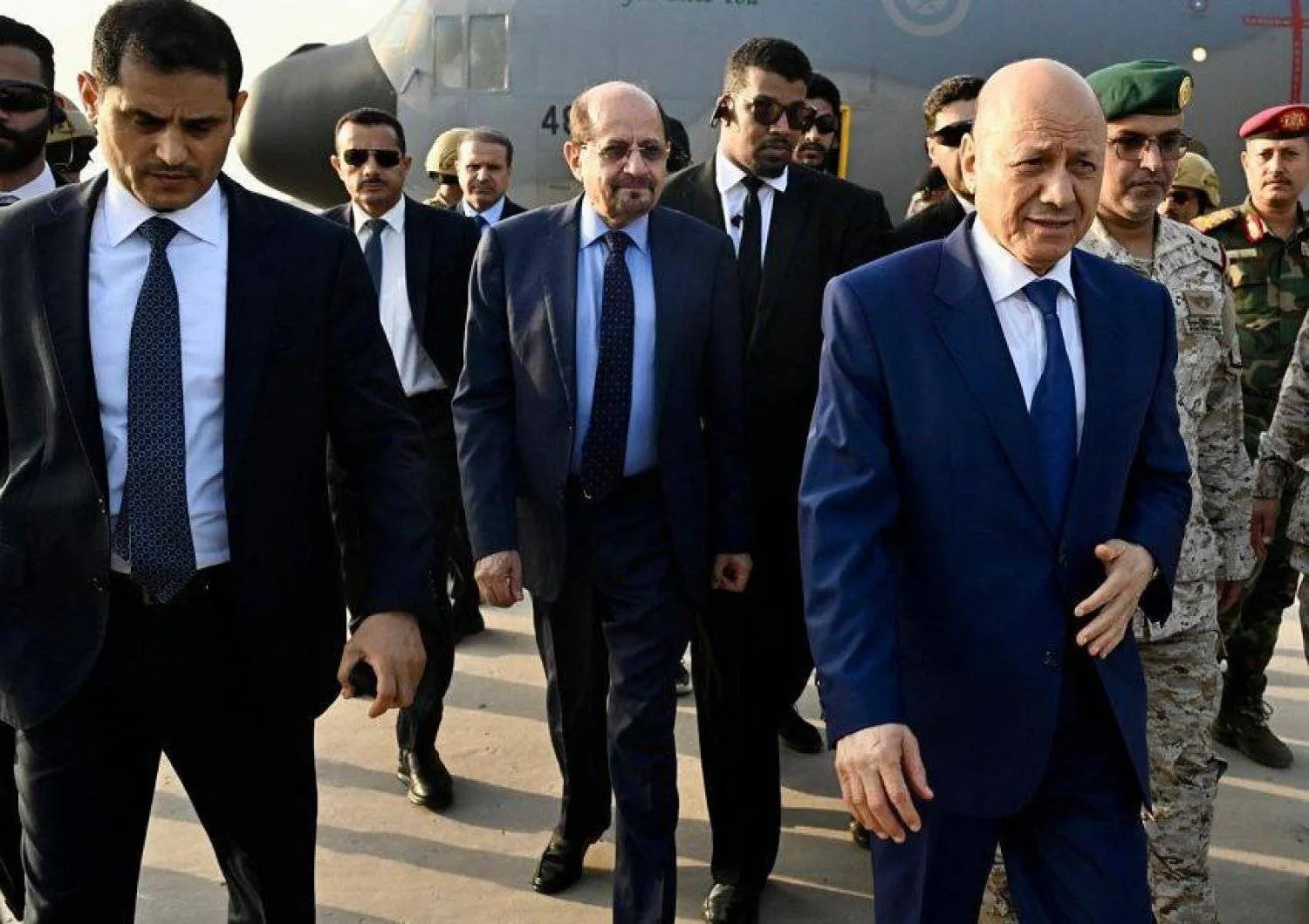President of Yemen’s Presidential Leadership Council (PLC) Dr. Rashad al-Alimi stressed on Saturday the need to unite ranks to confront the challenges facing the legitimate forces in the country.
He made his remarks in wake of a suicide attack that killed 16 soldiers and wounded 18 in the Abyan province.
Alimi returned to the interim capital Aden on Saturday from Saudi Arabia where he held a series of meetings with regional and international officials.
The meetings tackled the developments in Yemen and the region, support needed to back the legitimate government and state institutions to help them meet their commitments and ease the humanitarian crisis that has been compounded by the attacks by the Iran-backed Houthi militias on oil installations and international shipping lanes, reported state media.
Alimi stressed upon his return to Aden the need for unity especially given the extraordinary circumstances the Yemeni people are enduring, starting with economic and financial problems and the Houthi attempts to destabilize liberated regions.
He expressed his appreciation to the Arab coalition, led by Saudi Arabia and the United Arab Emirates, in helping Yemen restore state institutions and achieve the people’s aspirations for peace, stability and development.
Meanwhile, Interior Minister Ibrahim Haidan accused the Houthis of being behind the Abyan attack.
He condemned the terrorist attack, adding that it “will only increase the unity and determination of the security and armed forces in combating terrorism and its organizations”, whether they are Houthis, al-Qaeda, ISIS and others.
He said the Houthis and al-Qaeda coordinated to carry out the attack.
The minister underscored the importance of unity among the people to confront terrorism, which he said comes from Iran.
He called on the international and regional communities to condemn all forms of terrorism that target Yemen, to stand by the legitimate government and offer support to help eliminate this phenomenon.









